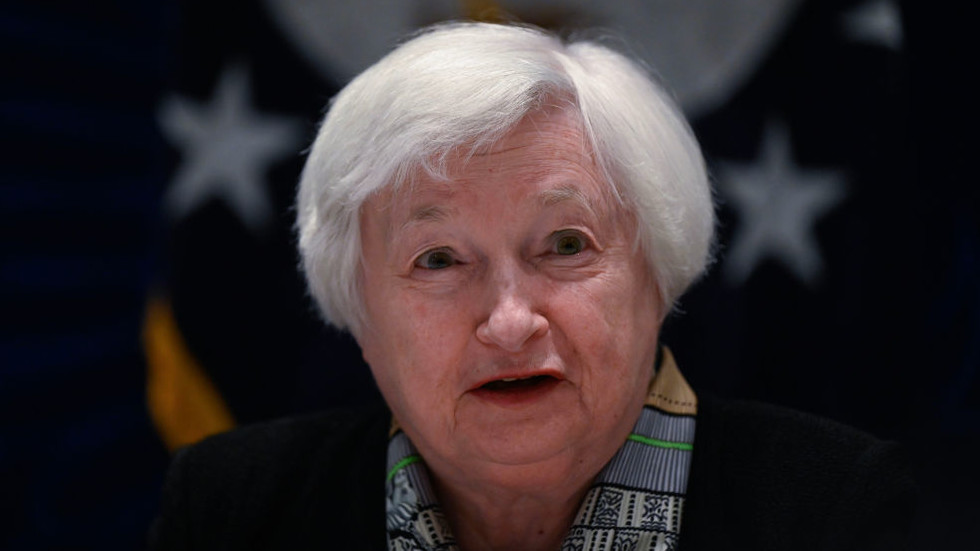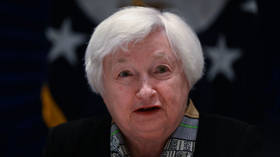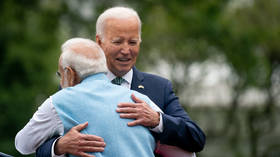
Janet Yellen has claimed that New Delhi fits with Washington’s strategy of trading with friendly nations

US Treasury Secretary Janet Yellen attends an event earlier this month at Washington’s embassy in Beijing. © Getty Images / Pedro Pardo
US Treasury Secretary Janet Yellen has claimed that India is a key ally under Washington’s so-called “friendshoring” strategy of relying increasingly on friendly countries for raw materials and other trade to create more stable supply chains.
“Friendshoring is an important foundation of our approach to increasing the resilience of our supply chains, and we see India as an indispensable partner in that,” Yellen told reporters on Sunday during her visit to Gandhinagar, India, for a meeting of G20 finance ministers and central bank governors. She added that she hoped to use her trip to deepen the already significant “friendshoring” relationship between Washington and New Delhi.
The US has sought to boost economic ties with “trusted partners” such as India and Vietnam amid rising tensions with China. Yellen, who held talks with Chinese officials earlier this month in Beijing, has visited India three times in the past nine months, and is scheduled to make a stop in Hanoi later this week.

Read more
Washington and its allies have sought to block advances in China’s semiconductor industry by restricting exports of advanced equipment and technology. China responded earlier this month, announcing new controls on its exports of key raw materials used in chipmaking and other electronics. Those materials include gallium, a metal that the US hasn’t produced for decades and imports primarily from China.
“De-risking and friendshoring is an important priority for the United States, and it’s something that we’re promoting here in India, and we will be discussing in Vietnam in the next leg of our trip,” Yellen said. She added that the US is India’s largest export market, and that the two countries reached an all-time high in trade volumes with each other last year.
While friendshoring has been billed by the International Monetary Fund as relying more on countries that share “similar values,” some have questioned whether the US and India have such a match. US President Joe Biden was criticized last month for hosting a visit by Indian Prime Minister Narendra Modi without publicly condemning his guest’s handling of human rights and “democratic values.” At least six Democrat lawmakers boycotted Modi’s speech to Congress, saying: “We must never sacrifice human rights at the altar of political expediency.”
READ MORE: US Treasury chief touts outcome of China talks




